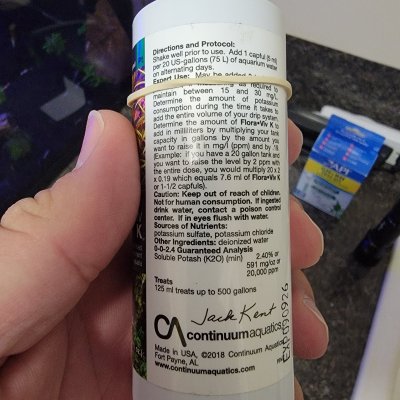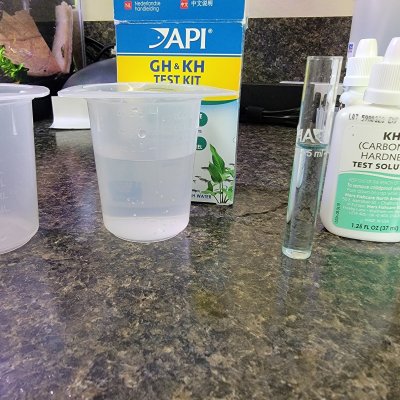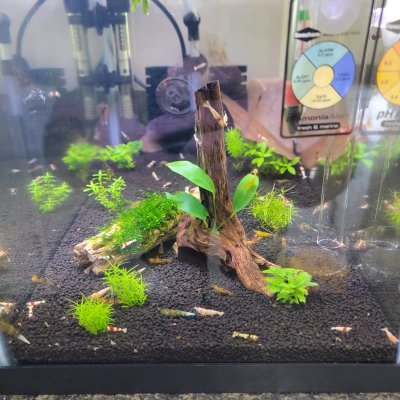Hopefully I'm okay asking this question here. I know no one that's more qualified to do so.
Freshwater caridina and neo caridina shrimp tank. I'm having holes in my plants and im thinking it a lack of potassium. My question is more chemistry related not particularly shrimp.
I have to keep kh and gh consistent in these setups. Caridina 0-1kh 4-6gh and neocaridina 3kh 7gh. Im seeing this deficiency in both species tanks I have.
Question. Will or how much will this product (k20), increase kh and gh. I already tested that It indeed increasing kh and tds. The gh test I did was inconclusive as my test was not scientific by a long stretch.
So can it increase kh or gh and lastly will this increase slowly decrease on its own as plants absorb them or will it stay in the tank until waterchange. I guess is it will somewhat go down if it's something the plants require that should be its going to be uptaked. Maybe I can monitor this uptake.
Thanks regardless if your able to help or not. Much appreciated!

Freshwater caridina and neo caridina shrimp tank. I'm having holes in my plants and im thinking it a lack of potassium. My question is more chemistry related not particularly shrimp.
I have to keep kh and gh consistent in these setups. Caridina 0-1kh 4-6gh and neocaridina 3kh 7gh. Im seeing this deficiency in both species tanks I have.
Question. Will or how much will this product (k20), increase kh and gh. I already tested that It indeed increasing kh and tds. The gh test I did was inconclusive as my test was not scientific by a long stretch.
So can it increase kh or gh and lastly will this increase slowly decrease on its own as plants absorb them or will it stay in the tank until waterchange. I guess is it will somewhat go down if it's something the plants require that should be its going to be uptaked. Maybe I can monitor this uptake.
Thanks regardless if your able to help or not. Much appreciated!




















